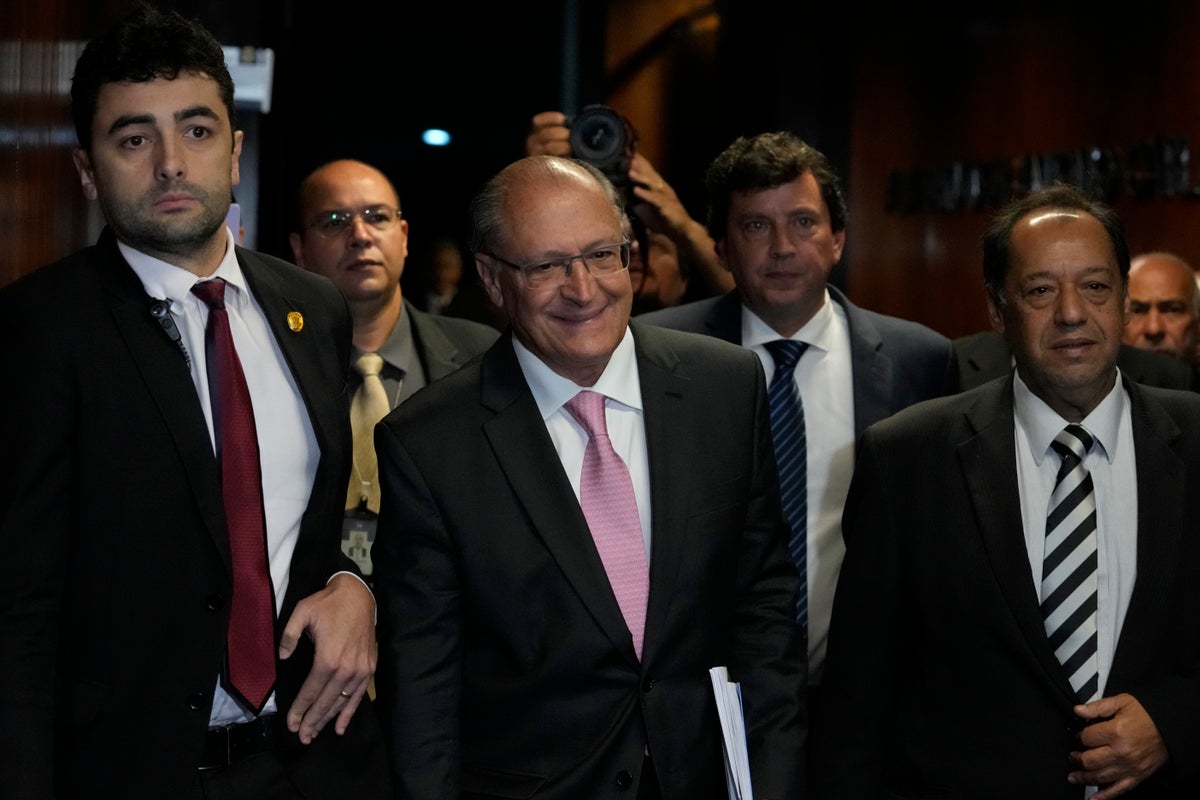
President-elect Luiz Inácio Lula da Silva's team arrived in Brazil's capital Thursday to begin the process of transfering power amid dwindling protests by supporters of incumbent Jair Bolsonaro.
Vice President-elect Geraldo Alckmin arrived at Congress accompanied by the coordinator of da Silva’s campaign and several lawmakers from the leftist Worker’s Party, including its leader. They began by meeting with the senator responsible for the government's 2023 budget proposal.
In the afternoon, Alckmin was scheduled to meet with Bolsonaro’s chief of staff, Ciro Nogueira, and then visit the federal accounting watchdog.
The meetings kick off the process that will culminate with da Silva's Jan. 1 inauguration. But they also aim to ensure governability with a potentially contentious Congress and provide reassurance that the administration of the far-right Bolsonaro will be cooperative.
There had been widespread concern Bolsonaro might present claims of fraud and challenge the results of Sunday's election, following the roadmap of former U.S. President Donald Trump. While Bolsonaro declined to publicly concede defeat in his first public comments Tuesday, Nogueira then told reporters he had received authorization to begin the transition process.
There have been questions about the ease with which da Silva will be able to govern, partly because conservative lawmakers from Bolsonaro’s party and others did well in the first round of the election, on Oct. 2, and are expected to present fierce opposition. In addition, the “Big Center” bloc of politicians known for exchanging support for positions and pork has been supporting Bolsonaro to date.
An opening came Sunday when Chamber of Deputies Speaker Arthur Lira became the first prominent Bolsonaro ally to recognize the election results. Lira oversees what has become commonly referred to as the “secret budget,” which directs billions to lawmakers for pet projects.
The mechanism was adopted during Bolsonaro’s government, enabling Congress and the executive branch to bypass a budget ceiling. During the campaign, da Silva criticized the program, saying it depleted funds for key social needs and promised to put an end to it. Many lawmakers already expect to receive funds for spending in their states.
Congress has until Dec. 17 to approve a 2023 spending bill with input from the new administration.
Da Silva’s team met with Sen. Marcelo Castro, who is responsible for the budget bill.
“We have a tight schedule, and it’s complicated,” Castro told reporters before the meeting with Alckmin. “It is easier if the new government proposes something.”
In a video posted to social media Wednesday, Bolsonaro addressed his supporters, calling for them to end their nationwide protests. They had blocked hundreds of roads, with some people calling for military intervention to overturn the election results.
In the narrowest presidential election since Brazil’s return to democracy in 1985, da Silva beat Bolsonaro by about 2 million votes.
“I know you’re upset. I’m just as sad and upset as you are. But we have to keep our heads straight,” Bolsonaro said. “Closing roads in Brazil jeopardizes people’s right to come and go.”
By Thursday morning, more than 850 protests had broken up, leaving 73 partial or full blockages of roads, the federal highway police said. Of the 13 full blockages, most were in the southern state of Santa Catarina.







